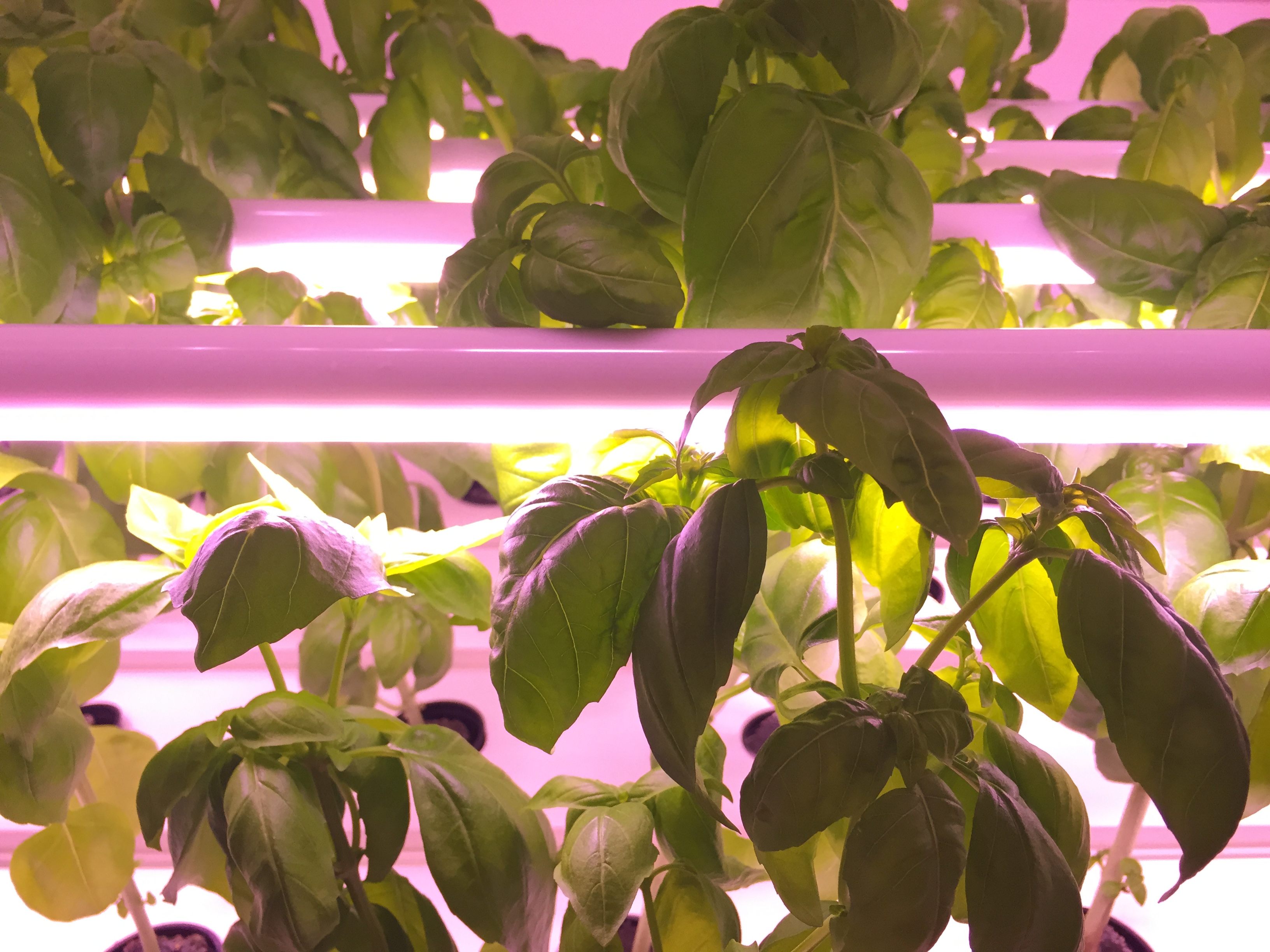
April 28, 2015, by Lindsay Brooke
Basil puts vertical farming and hydroponics to the test and helps raise funds for Nepal
Two hundred and sixty three specially grown pots of Basil went on sale today to raise money for the victims of the Nepal earthquake. The crop is part of a new hydroponics research project being carried out by an undergraduate student at The University of Nottingham.
BEng Architectural Environment Engineering student Matt Woodward has spent the last six weeks growing the plants from seed to crop as part of his research dissertation project. He is investigating building services design optimisation for integrated vertical farming systems – engineering systems for global food security.
The project, supported by the universities multidisciplinary vertical farming and urban agriculture research team and HydroGarden UK, has used new hydroponic and low energy LED technologies for high yield indoor plant production using minimal energy and water with NO pesticides
Matt said: “The amount of arable land and fresh water required to feed a growing global population just don’t exist. To feed the 9 billion strong global population by 2050 we would need additional farmland the size of Brazil, but there isn’t any more suitable land and the current amount is shrinking due to poor farming methods, pollution, desertification and global climate change. Vertical urban farming with hydroponics could be a solution to this developing crisis.”
Initial findings
- Growth rate – the basil in the basement system grew faster than the ones under natural light
- Yield – I have so far collected 60% more basil from the system in the basement (under fully artificial light.) This percentage will decrease after the final harvest tomorrow]
- Harvest – I was able to harvest the basement basil 10 days earlier than the system in the sunspace.
- Water – The faster growth in the basement also meant that that system used 22Litres more water and 50ml more nutrients (but more basil was produced as a result)
- Energy use – The system in the basement uses approximately 190% more energy than the system upstairs, however this value will be offset by the energy generated by the PV panels on the roof.
The project, led by Mark Gillott Professor of Sustainable Building Design, said: “All the plants were grown in controlled environments utilising just light, water and mineral nutrients for what we hope is a better taste experience – come along and try even if it’s just to see the vertical indoor farms.”
All charity donations in exchange for a fresh basil plant will go to Nepal.
In September 2014 the Centre for Urban Agriculture hosted an International Vertical Farming and Urban Agriculture Conference to bring together scientists, engineers, industrialists and policymakers to discuss current ideas, technologies, commercial applications and research opportunities. If you want to know more about hydroponics take a look at this University video – HydroGarden – cultivating eco-systems for the future.
No comments yet, fill out a comment to be the first

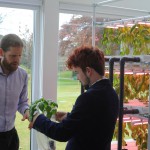
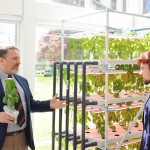
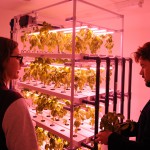
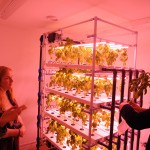
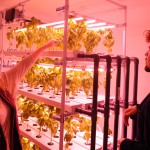
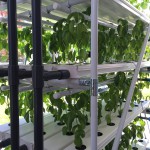
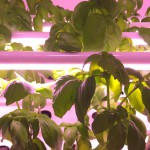
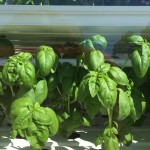
Leave a Reply